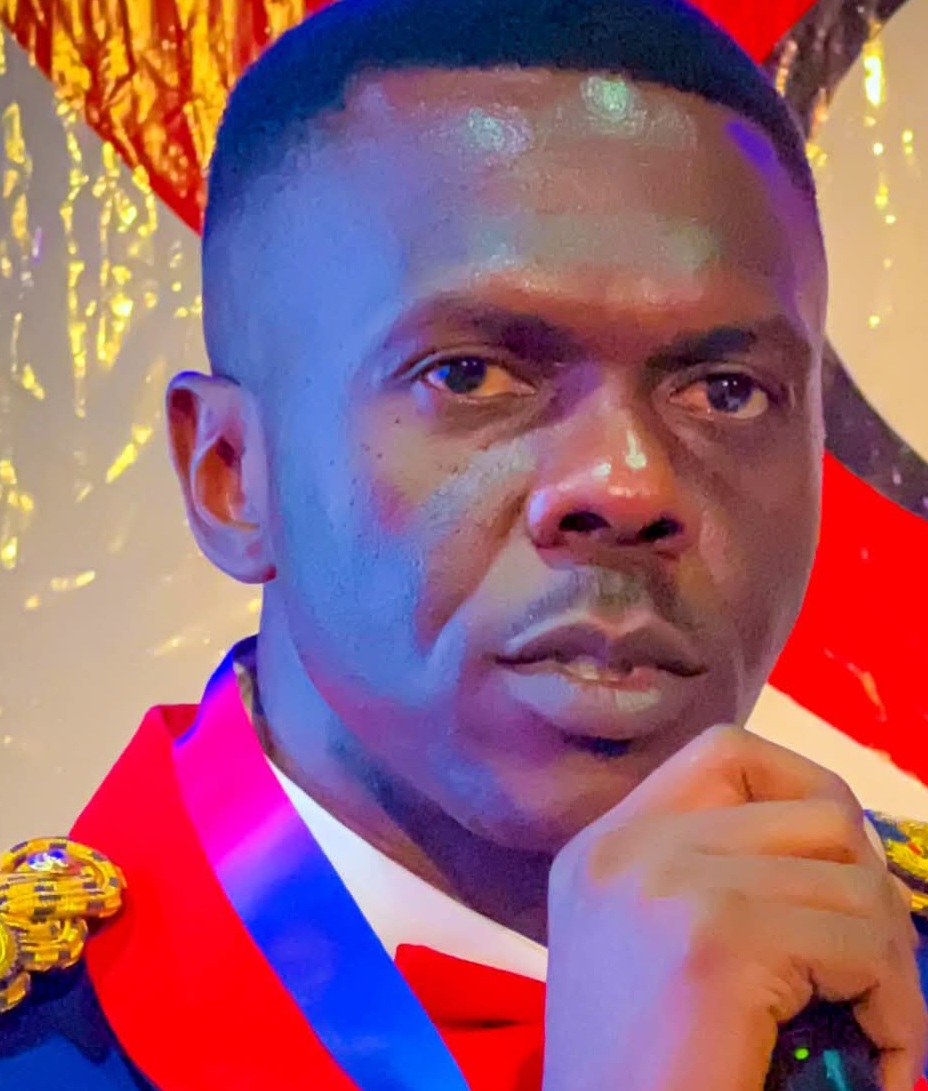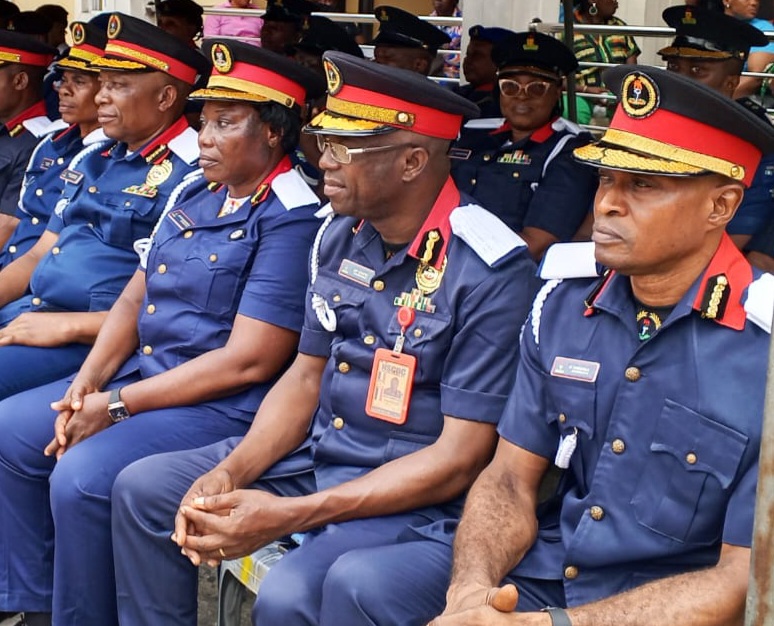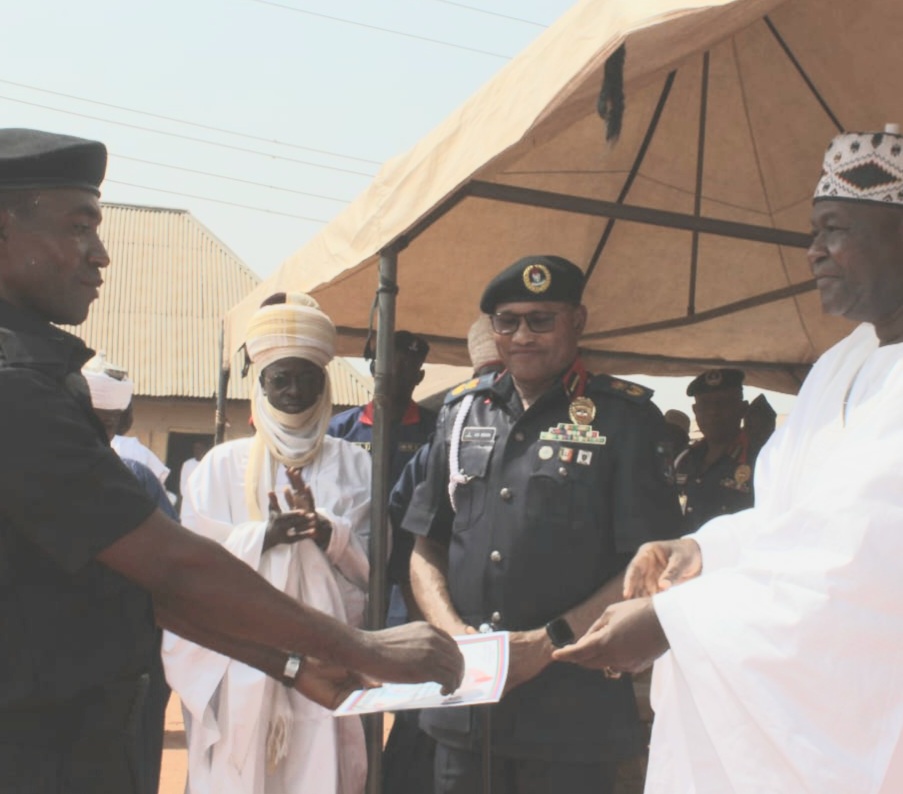
Pix: Commander John Onoja Attah
By Ikechukwu Adolphus, writes in from Lafia, Nasarawa State
At a time when many Nigerians view security agencies with skepticism often blaming them for inefficiency or compromise the rise of Commander John Onoja Attah to lead the NSCDC’s Special Mining Marshals stands out as a remarkable exception. In just over a year, his leadership has significantly shaped Nigeria’s fight against illegal mining an illicit activity that has drained the nation of trillions in mineral resources while worsening insecurity, degrading the environment, and igniting social tensions in mining communities.
Nigeria, blessed with over 44 commercially viable solid minerals including gold, lithium, tantalite, and barite should be a mining superpower. Yet for decades, illegal operators, often backed by powerful individuals, have exploited these resources in the shadows. The result is a parallel black economy, unaccounted wealth flights, environmental degradation, and escalating insecurity in mineral-rich areas. For years, efforts to police this sector had been piecemeal until 2023, when the Federal Government, through the Ministry of Solid Minerals and the NSCDC, launched the Special Mining Marshals.
At the center of this reform was the appointment of John Onoja Attah, a career officer with a reputation for operational discipline, unshakable integrity, and administrative courage. Within months, the tone of enforcement changed dramatically.
As of July 2025, under his direct leadership, the Special Mining Marshals have uncovered over 460 illegal mining sites across more than 20 states, arrested 387 suspects, and recovered dozens of trucks, motorcycles, heavy equipment, and large quantities of illegally mined minerals. Out of these arrests, 146 suspects are currently undergoing prosecution in competent courts. These operations span the mineral belts of Kogi, Nasarawa, Zamfara, Niger, Cross River, and Oyo States.
Onoja’s approach is neither ceremonial nor reactive. He leads from the front. In Kogi State’s Yagba East Local Government Area, for instance, he personally coordinated a high-risk clearance operation where 17 illegal miners were arrested, 39 motorcycles impounded, and stolen lithium-rich soil confiscated. In Nasarawa, his men raided a syndicate operating under the guise of foreign-backed cooperatives, recovering tons of crude tantalite valued in the international market at over ₦600 million. These are not just raids; they are deliberate, intelligence-led offensives.
What has made Onoja stand out beyond operational efficiency is his incorruptibility. In an environment where enforcement agents are known to “settle” with illegal miners behind closed doors, multiple reports confirm that Onoja has rejected bribes running into tens of millions of naira. At a media briefing in late 2024, he declared, ”No mineral is worth my intergrity.” That ethos has become the mantra of the unit.
His ethical posture was recognized in December 2024 when he was named Nigeria’s Most Outstanding Security Officer of the Year by a consortium of journalists, civic groups, and industry stakeholders. The Minister of Solid Minerals, Dr. Dele Alake, described Onoja as ”the face of the Nigeria’s mining intergrity.” The Commandant-General of the NSCDC, Dr. Ahmed Audi, referred to him as ”one of the most resourceful and committed commanders we’ve ever had.”
Yet, heroism in Nigeria is often a double-edged sword. As Onoja dismantled illegal mining networks, he uncovered another troubling layer: the collusion of some elements within the security circle. In May 2025, he petitioned the National Assembly, alleging that officers from the Force Intelligence Department in Nasarawa not only obstructed Marshals’ operations but also shielded suspects, seized evidence, and used court injunctions to stop lawful prosecutions. His testimony before the Senate Ethics Committee revealed deep institutional rot; one that threatens to derail the entire anti-mining reform if not urgently addressed.
This whistleblowing did not come without backlash. There are credible indications that attempts were made to discredit him both in the media and within government circles. The police denied his allegations. The Ministry of Solid Minerals, the Nigeria Extractive Industries Transparency Initiative (NEITI), and several civil society organisations rallied behind him, urging the Presidency to protect him from sabotage.
Yet, as with all reformers, Onoja’s success has not been without controversy. In Agwada, Nasarawa State, a section of the community accused his men of intimidating farmers, ignoring underage mining practices, and in some cases, demanding bribes from Chinese nationals who failed to produce licenses. While the NSCDC swiftly denied institutional wrongdoing, the allegations underscore the need for tighter field supervision, human rights oversight, and community engagement. Even a noble war must be waged within the bounds of law and fairness.
Still, it would be intellectually dishonest to equate isolated complaints with a systemic failure. The vast majority of operations carried out under Onoja’s watch have been celebrated by local communities, state governments, and industry players. His operations have not only boosted investor confidence in the mining sector but also helped to restore lands, curb environmental damage, and reclaim sites for legal operators. In Zamfara, for example, his clearance paved the way for two new legal cooperatives to obtain licenses resulting in over 240 new jobs in just six months.
In John Onoja, Nigeria has found an officer who refuses to compromise integrity for convenience. His record is historic in its impact. He represents what Nigeria’s security should look like: principled, precise, and people-focused.
He is, indeed, an exemplary plus for Nigeria’s security; one the country should hold in high esteem with immense cooperation and support.






